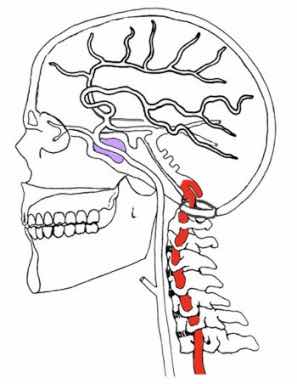- Home
- Better health
- Murky science
Murky science
Murky science questions whether evidence-based care is the be and end all?
There are many people, mostly uninformed people, I might say, who profess that physics and chemistry are some sort of god we should bow down and worship. As though every human dilemma can be reduced to a mathematical formula, and terms like evidence based medicine and controlled clinical trial are tossed about with grandeur as the panacea to all our health dilemmas.
And then comes, to test our little theories comes some fascinating research about the placebo effect.
An interesting survey of 1200 randomly selected physicians found that 50 percent of those who responded prescribe placebos on a regular basis, knowing full well that it's superior to no treatment at all. But how would the treatment shape up to a controlled clinical trial? Would giving dextrose, a sugar, to a patient with fibromyalgia actually help? Read more about this dilemma at our placebo special needs page.
"There is always a well-known solution to every human problem — neat, plausible, and wrong."
H. L. Mencken
Vitamin C
More than 250 years ago, Dr James Lind, an astute young man, joined the Royal Navy at the time when scurvy was taking a heavy toll of His Majesty's sailors. In fact a recent very successful four year expedition against the Spanish, led by Commander Anson yielded an interesting statistic: Just four men were killed in action, but over one thousand succumbed to scurvy.
Dr Lind proposed an interesting experiment: A group of sailors with the typical symptoms of scurvy were subjected to six different diets, varying from the standard medical treatment, an elixir of sulphuric acid, on the one hand, to two oranges plus a lemon each day on the other. The sailors given the citrus treatment were almost completely cured within a week. The medical treatment didn't help one jot. One up for alternative health care.
Now for the second interesting piece of science. It was difficult to keep citrus fresh for any length of time, so Dr Lind proposed making a concentrate from citrus. Unfortunately, the trial using Dr Lind's concentrate was a total failure and his theory, tried and tested, mind you, was totally discredited. Unbeknown to him, heating the citrus destroyed the vitamin C. It was more than thirty years before another astute doctor came across James Lind's work and introduced the lime to all British sailors, soon known as "limeys". Meantime, literally hundreds of thousands of sailors died of scurvy. Strike Out for food processing and murky science.
Know the difference between fresh orange juice and OJ? Poles apart.
Lies and damn statisitics
Ever since Mark Twain's famous rhetoric, it's known that unscrupulous researchers, using murky science, can bend the statistics to produce the desired result.
Food manufacturers regularly, for example, using rounding off of figures to claim that a particular product has zero trans isomers, the toxic fatty acids produced in hydrogenated foods. New research reveals that it's trans fat, not the saturated butter that causes heart disease. Read more about how the company making an otherwise very healthy sandwich spread, Marmite, use damn lies, and statistics, to distort the truth about their spread.
Likewise, unfortunately, there is plenty of glucosamine chondroitin research, funded by the manufacturers, claiming outstanding results for their products. Yet there is only one independent study confirming its effectiveness in the treatment of chronic arthritis; and many have stated that it is quite useless.
Like James Lind's citrus concentrate, I suspect the jury may ultimately come up with another finding about glucosamine and chondroitin sulphate, using research other than the current murky science being used by some unscrupulous manufacturers. Patients often report being helped by glucosamine and chondroitin, but is it merely placebo?
More certain are the preliminary trials coming from Harvard Medical school on the use of a CHICKEN BONES extract for the treatment of arthritis.
Selective reporting
The editor of ResearchReviewService regularly warns of the dangers of enthusiastically accepting and adopting research findings that confirm our viewpoint, whilst subconsciously, perhaps consciously, suppressing or being sceptical about research that supports another viewpoint.
Two popular medical science writers, Simon Singh and Edzard Ernst, use murky science to castigate the chiropractic profession for the dangers of its techniques, and question the effectiveness of chiropractic treatment.
They claim that Chiropractors are in denial concerning STROKE CHIROPRACTIC advocating that cervical spine manipulation should be banned because of its dangers. In the same breath they conveniently ignore the dangers of common analgesics and that 14,000 Americans are reported to have died in one year from an internal haemorrhage from taking medically prescribed anti inflammatory drugs.
Stroke after cervical manipulation
Dr Ernst reports that in one year there were nine strokes after cervical spine manipulation in the UK, accusing chiropractic of being highly dangerous. What he doesn't state is how many of them were given by chiropractors.
Once, in South Africa, DCs were castigated by the medical profession after a physiotherapist gave a so called chiropractic manipulation resulting in a neck hernia. I know of medical doctors and orthopaedic surgeons who manipulate the spine; and the local Turkish barber too.
Just how many of those strokes were caused by a chiropractor doing a cervical manipulation? I glaring omission, Dr Ernst. Would that classify for suppression of all the facts? I wonder how you would react to the mortality rates after a chiropractor surgically removed an appendix? It's murky science at its worst.
Just imagine 4000 British chiropractors, treating say 100 patients per week, one third of whom receive two cervical manipulations.
That 4000 times 60 manipulations per week
= in total that would be 240,000 cervical spine manipulations in one week in the United Kingdom.
In 52 weeks, the ballpark figure might conclude that British chiropractors give roughly 10 million, manipulations per year.
Nine stroke: Indeed, roughly one per million, Dr Ernst. In your own words: "a remarkably small risk" (p216 Trick or Treatment), and this after careful analysis of all the neurologists in the United Kingdom. So how much value should we give to Dr Ernst's oft repeated remark: "the vast majority of incidents go unreported and unrecognised." (p216)
"Yon Cassius, methinks he doth protest too much."
Julius Caesar

But it is conceivable that some chiropractors are in fact oblivious of the potential dangers of every therapy including their own cervical spine manipulation. Serious incidents have happened. Because these serious reactions are really very rare, some foolish chiropractors may not be aware that their next manipulation could (1 in million plus chance) result in the patient having a stroke. Like every other therapy, chiropractors need to have good reasons for manipulating the cervical spine.
And I have to agree with Singh and Ernst, routinely manipulating the cervical spine of every patient who consults a chiropractor is dangerous practice.
Singh and Ernst make much of "the traditional ambitions of both chiropractic therapy and osteopathy - manipulating the spine or bones in general can cure everything (emphasis mine) - are equally bizarre and misguided..." (p219)
Furthermore, "... their (chiropractor's) denial that bacteria and viruses cause many diseases, and their conviction that realigning a patient's spine could cure every (emphasis mine) ailment."
Come on Dr Singh and Dr Ernst! Whilst it may be true that chiropractors in the Nineteenth and early Twentieth centuries may have denied that viruses and bacteria caused disease, and believed that "every complaint" could be cured by manipulating the spine, there surely has NOT BEEN ONE SINGLE CHIROPRACTOR ON THE PLANET who has in the last half century believed that.
When you have hocus-pocus scientists out to manipulate the facts, it's no wonder that the general public is somewhat sceptical of murky science. If you can't trust men like Singh and Ernst, supposedly objective scientists, to be fair in their reporting of the facts, then who can you trust?

The salt controversy
Whilst science may ultimately answer all our questions about health, to date murky science still oft prevails. Even the best informed scientists still very frequently have an insufficient grasp of complex subjects to ask the right questions.
"Some problems are so complex that you have to be highly intelligent and well-informed just to be undecided about them."
Laurence J. Peter
Then you get contradictory results. Like the salt research. Does lowering your salt lower your blood pressure, and decrease heart disease? Maybe not...
A new study, reported in the Am J of Hypertension, examined the results of seven clinical studies and found no solid proof that reducing salt consumption prevents heart conditions.
Researcher Dr Taylor, suggests that studies showing that lowering salt in the diet reduces the risk of cardio-vascular disease can often be confusing. Why? People who lower the salt in their diet are often on a health kick. Simultaneously they start exercising more, they reduce their saturated fat intake, they've read that phytosterols are healthy and increase their salad and fruit intake...
Was it the lower salt intake, or was it some other factor that reduced their risk of stroke and heart disease? Murky science.
Do urologists practise unscientific medicine?
Kidney specialists routinely tell their patients to reduce their salt intake to lower their blood pressure but, as Prof Marion Nestle reports in Scientific American:
"I was once at a sodium meeting at which there were a bunch of statisticians... these statisticians stated that "anyone who thinks that salt has anything to do with hypertension is delusional."
Prof Nestle continues:
"So you have this curious anomaly where whenever you do a clinical trial you get these complicated, difficult-to-interpret results that don't show much of an effect. But everybody who works with patients who have hypertension think they do better [on a low-salt diet]. And every committee, body and group that has ever in my lifetime considered whether salt has anything to do with hypertension says, "yes," and has recommended salt reduction as a public health measure. That's the curious situation that we are in."
Murky science. Ultimately we will have the answers, but to date, many health questions are unanswered. It IS unscientific medicine to tell people with cardiovascular disease to reduce their salt intake: it simply hasn't been proved to be so, yet ultimately we will almost certainly prove that the enormous consensus between urologists is probably correct. But right now it can be said that urologists are practising murky science and UNscientific medicine based on opinion rather than solid fact.
- Home
- Better health
- Murky science
Did you find this page useful? Then perhaps forward it to a suffering friend. Better still, Tweet or Face Book it.
